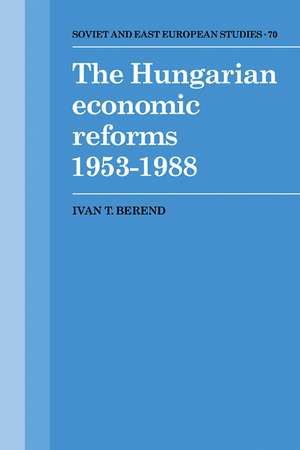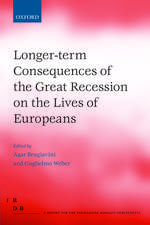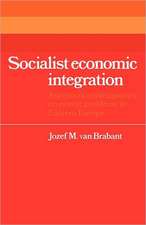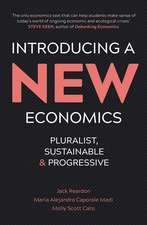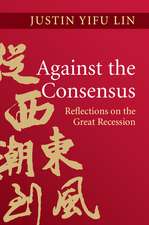The Hungarian Economic Reforms 1953–1988: Cambridge Russian, Soviet and Post-Soviet Studies, cartea 70
Autor Ivan T. Berenden Limba Engleză Paperback – 11 feb 2009
Din seria Cambridge Russian, Soviet and Post-Soviet Studies
-
 Preț: 228.71 lei
Preț: 228.71 lei -
 Preț: 374.50 lei
Preț: 374.50 lei -
 Preț: 448.80 lei
Preț: 448.80 lei -
 Preț: 435.54 lei
Preț: 435.54 lei -
 Preț: 322.62 lei
Preț: 322.62 lei -
 Preț: 362.30 lei
Preț: 362.30 lei -
 Preț: 395.37 lei
Preț: 395.37 lei -
 Preț: 378.96 lei
Preț: 378.96 lei -
 Preț: 305.51 lei
Preț: 305.51 lei -
 Preț: 295.19 lei
Preț: 295.19 lei -
 Preț: 283.03 lei
Preț: 283.03 lei -
 Preț: 207.35 lei
Preț: 207.35 lei -
 Preț: 280.15 lei
Preț: 280.15 lei -
 Preț: 323.65 lei
Preț: 323.65 lei -
 Preț: 406.33 lei
Preț: 406.33 lei -
 Preț: 319.61 lei
Preț: 319.61 lei -
 Preț: 273.13 lei
Preț: 273.13 lei -
 Preț: 281.49 lei
Preț: 281.49 lei -
 Preț: 284.98 lei
Preț: 284.98 lei -
 Preț: 330.09 lei
Preț: 330.09 lei -
 Preț: 284.98 lei
Preț: 284.98 lei -
 Preț: 278.80 lei
Preț: 278.80 lei -
 Preț: 284.39 lei
Preț: 284.39 lei -
 Preț: 287.07 lei
Preț: 287.07 lei -
 Preț: 238.90 lei
Preț: 238.90 lei -
 Preț: 320.17 lei
Preț: 320.17 lei -
 Preț: 283.03 lei
Preț: 283.03 lei -
 Preț: 320.38 lei
Preț: 320.38 lei -
 Preț: 456.97 lei
Preț: 456.97 lei -
 Preț: 279.76 lei
Preț: 279.76 lei -
 Preț: 285.75 lei
Preț: 285.75 lei -
 Preț: 418.98 lei
Preț: 418.98 lei -
 Preț: 381.36 lei
Preț: 381.36 lei -
 Preț: 284.56 lei
Preț: 284.56 lei -
 Preț: 285.93 lei
Preț: 285.93 lei -
 Preț: 283.03 lei
Preț: 283.03 lei -
 Preț: 271.01 lei
Preț: 271.01 lei -
 Preț: 321.74 lei
Preț: 321.74 lei -
 Preț: 283.63 lei
Preț: 283.63 lei -
 Preț: 285.54 lei
Preț: 285.54 lei -
 Preț: 295.29 lei
Preț: 295.29 lei -
 Preț: 434.70 lei
Preț: 434.70 lei - 14%
 Preț: 825.10 lei
Preț: 825.10 lei
Preț: 322.29 lei
Nou
Puncte Express: 483
Preț estimativ în valută:
61.67€ • 64.52$ • 51.23£
61.67€ • 64.52$ • 51.23£
Carte tipărită la comandă
Livrare economică 02-16 aprilie
Preluare comenzi: 021 569.72.76
Specificații
ISBN-13: 9780521108010
ISBN-10: 0521108012
Pagini: 360
Dimensiuni: 152 x 229 x 20 mm
Greutate: 0.53 kg
Editura: Cambridge University Press
Colecția Cambridge University Press
Seria Cambridge Russian, Soviet and Post-Soviet Studies
Locul publicării:Cambridge, United Kingdom
ISBN-10: 0521108012
Pagini: 360
Dimensiuni: 152 x 229 x 20 mm
Greutate: 0.53 kg
Editura: Cambridge University Press
Colecția Cambridge University Press
Seria Cambridge Russian, Soviet and Post-Soviet Studies
Locul publicării:Cambridge, United Kingdom
Cuprins
Preface; Introduction; Part I. The First Phase of the Reform Process: the intellectual antecedents and the first corrective steps, 1953–1964: 1. The first moves to correct the economic mechanism; 2. The critique of the command economy: towards a new concept of the economic system; 3. The turn: reforms goals of the government and the practice of correction; 4. Economic reform and the workers' councils; 5. The principle of the substantial reform; 6. A counterproposal for partial corrective measures; 7. Immediate corrections to the operation of the economy; 8. Intervention against the comprehensive reform plans as 'economic revisionism'; 9. Minor corrections - the transformation of company structures; 11. The new model for agricultural cooperatives; 12. First criticisms of the ineffectiveness of the corrective policy; Part II. The 1966 decision on comprehensive reform: the second phase: 13. Disequilibrium, tensions and shortcomings in the workings of the economy; 14. Plans and preparation for reform in other socialist countries; 15. The political background to the reform; 16. The reform decision; 17. Debates on the reform and compromises before its introduction; 18. The main features of the new reform system; 19. The plan and preparations for continuing the reform after 1968; 20. The reform comes to a halt and reversal; 21. The oil crisis and its consequences; Part III. The Third Phase of the Reform Process, from 1979 onwards: 22. Changing political conditions; 23. Returning to reform; 24. A new chapter in the debates on reform: the reform decisions of 1984 and 1987; 25. The price reform of 1979–1980; 26. Partial reform of the system of institutions; 27. Internal contradictions and delays in the process of reform; 28. A new role for small business; 29. From reform towards a change of system; Notes; Index.
Descriere
Professor Berend presents a comprehensive inside account of Hungary's economic reforms since the 1950s.
